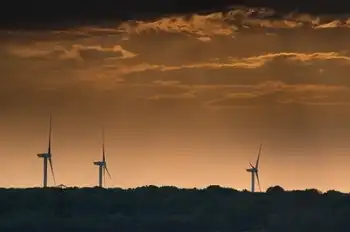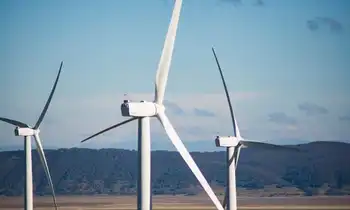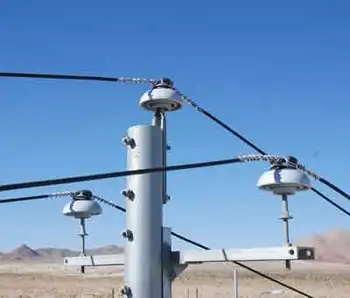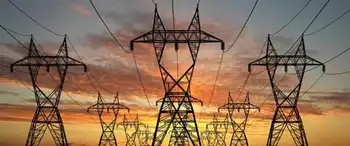Eastern states reject transmission corridor
ALBANY, NEW YORK - The states of New York, Pennsylvania and Virginia are petitioning the federal government to reconsider designating dozens of their counties for the siting of a national priority, high-speed electricity transmission corridor.
On October 5, the Energy Department published its order designating two National Interest Electric Transmission Corridors - the Mid-Atlantic Corridor, and the Southwest Corridor.
The Mid-Atlantic Corridor includes counties in Ohio, West Virginia, Pennsylvania, New York, Maryland, Virginia, and all of New Jersey, Delaware, and the District of Columbia. The Southwest Area National Corridor includes counties in California and Arizona.
"These National Corridors serve as an important indication by the federal government that significant transmission constraint or congestion problems exist," said Energy Samuel Bodman, announcing the corridors in October. "The goal is simple - to keep reliable supplies of electric energy flowing to all Americans."
Also filing a petition with the department for a rehearing on the designation of the transmission corridors in the Southwest and mid-Atlantic were 20 environmental and conservation groups.
The states and groups say the Department of Energy, DOE, disregarded key energy issues, failed to consult with the states and failed to adequately assess potentially significant environmental impacts of the transmission corridors.
In their rehearing petitions, the states contend that federal agency exceeded its authority and would potentially usurp the states' authority to enforce their own environmental laws, regulations and policies.
"The designation of 47 counties in New York state as part of a National Interest Electric Transmission Corridor by DOE sets the stage for the federal government to preempt New York's legitimate oversight and process for reviewing and siting transmission projects within our state's borders," said Governor Eliot Spitzer.
"The federal government should not be able to overrule states' legitimate and well-established regulatory authority," Spitzer said. "New York State already has an efficient one-stop process for reviewing applications to build transmission facilities. The process includes detailed studies of the environmental impacts of a proposed facility, and provides a forum for stakeholders to weigh in on proposed projects."
The New York Department of Environmental Conservation, DEC, and the New York State Public Service Commission have filed separate petitions with seeking a rehearing of the corridor designation, Spitzer said.
DEC Commissioner Pete Grannis said, "This designation puts the goal of increasing energy transmission - regardless of environmental impacts - above New York's environmental laws and policies."
"In fact," said Grannis, "the designation raises many questions about impacts, from air quality to Forest Preserve land to natural heritage areas to wild and scenic rivers. Rather than bypassing environmental reviews, federal authorities should begin a full assessment at the earliest possible time to ensure that planning and decisions reflect environmental values."
Pennsylvania Governor Ed Rendell Friday asked the Energy Department to reconsider its decision to designate 52 counties in Pennsylvania as part of the Mid-Atlantic Corridor.
"This designation and action by the federal government is a blatant abuse of states' rights," said Governor Rendell. "There is no evidence to suggest that Pennsylvania's Public Utility Commission has ever obstructed a siting process or refused a proposed transmission project, so is unnecessary that such a large area of the state, and the citizens who live in those areas, be put in a position to accept transmission lines through their back yards."
"These transmission lines will be on our land and depreciate our property values, but they may not offer any benefit to Pennsylvania consumers," Rendell said. "Furthermore, they will be delivering dirtier, fossil-fuel-derived power from states to the south and west of Pennsylvania at a time when we're trying to protect the environment and meet our energy needs through clean and renewable technologies. This is simply unacceptable."
Virginia Governor Timothy Kaine, Attorney General Bob McDonnell and two Virginia congressmen asked the Energy Department Monday to reconsider inclusion of their state in the transmission corridor. They say the federal agency failed to comply with federal law by not consulting with the affected states when it designated the corridors.
If the Department of Energy does not act on a rehearing request within 30 days, the request is deemed to be denied.
Related News

Alberta Ends Moratorium on Renewable Energy Projects
ALBERTA - The Alberta government has announced the end of a temporary suspension on the development of new renewable energy projects. This pause, which had been in place since May 2023, was initially implemented to evaluate the effects of rapid growth in renewable energy installations on the province's power grid and overall energy system. However, the decision to lift the moratorium reflects a shift in the government’s approach to balancing energy needs and environmental goals.
The suspension was introduced amid concerns that the swift expansion of wind and solar energy projects could place undue stress on Alberta's electrical grid and…




